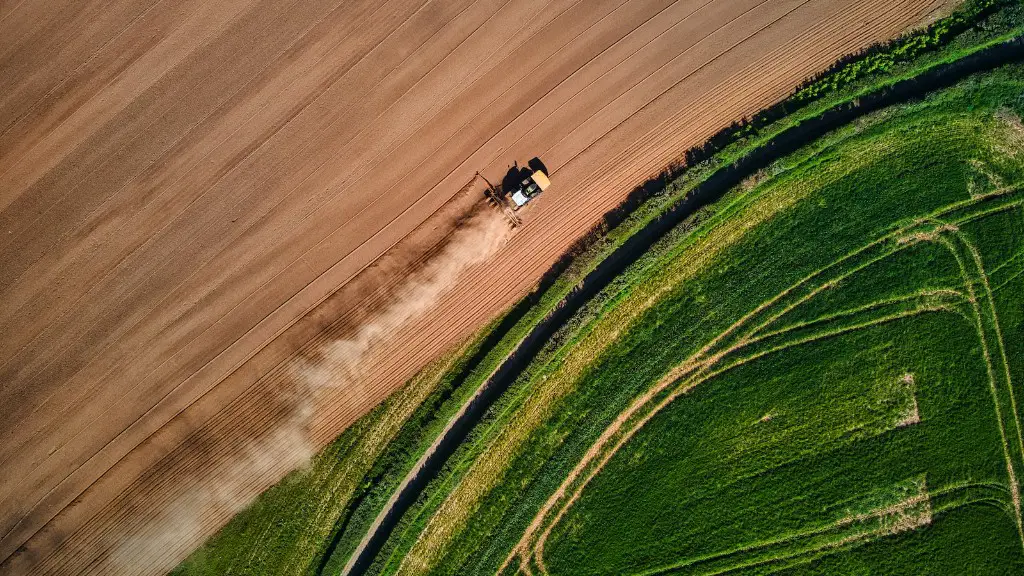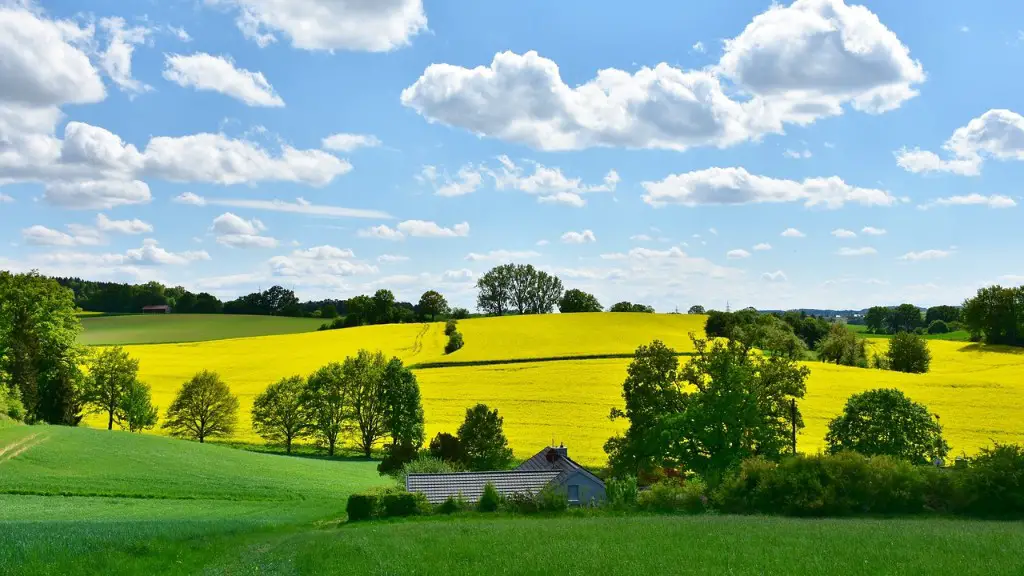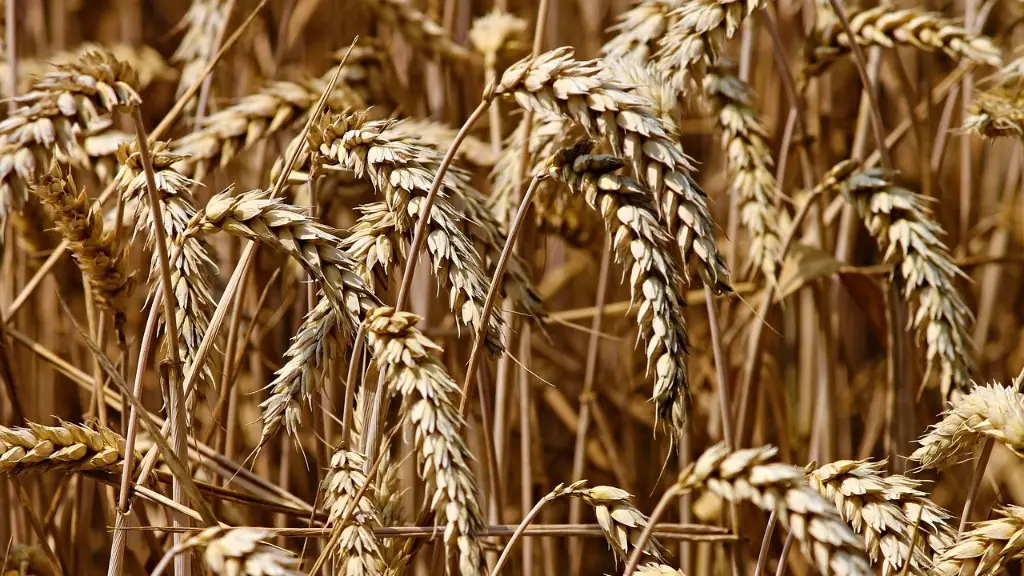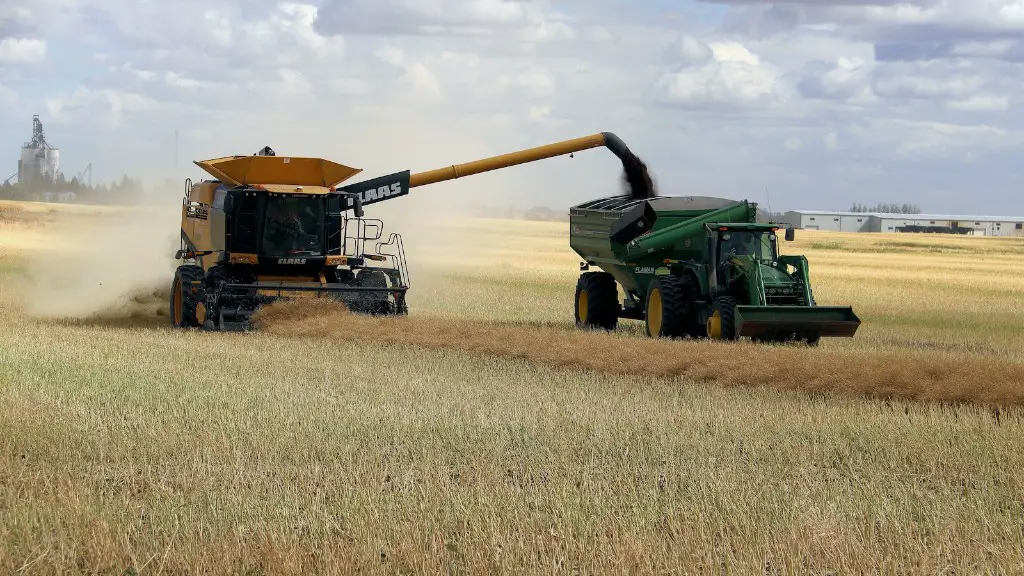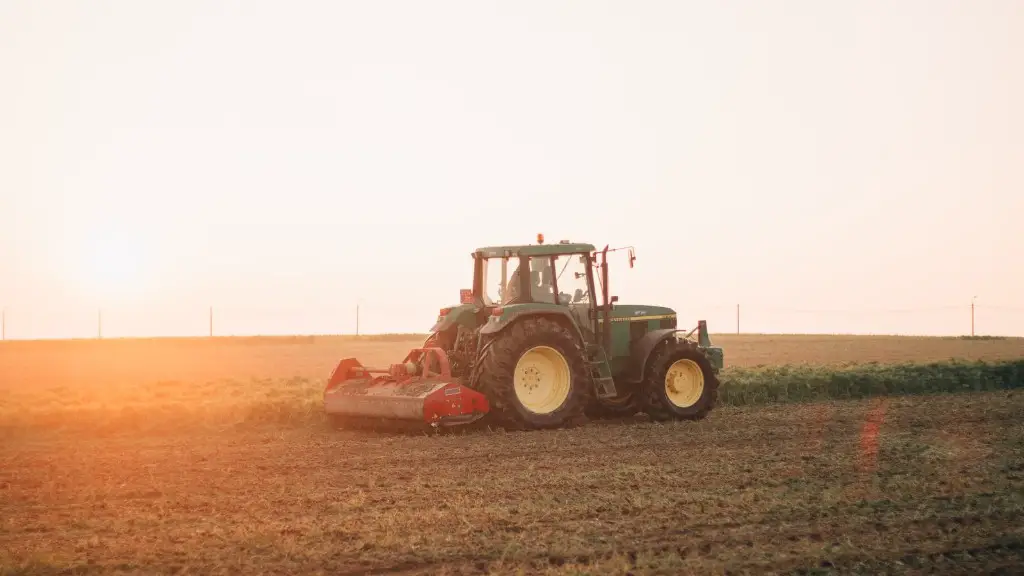Conservation in agriculture can save large amounts of water due to a variety of reasons. More efficient irrigation systems can reduce the amount of water lost to evaporation and runoff. Proper irrigation techniques can also help reduce water consumption. In addition, crop rotation and other soil conservation methods can help reduce the amount of water needed for agriculture.
Agriculture is one of the leading users of freshwater resources, accounting for approximately 70% of all water withdrawals globally. In many parts of the world, water for agriculture is scarce and demand exceeds supply. As a result, water conservation in agriculture is essential to ensure food security and water sustainability.
Water conservation in agriculture can save large amounts of water by using irrigation techniques that maximize water efficiency and by using water-efficient crop varieties. The use of irrigation techniques such as drip irrigation and sprinkler irrigation can significantly reduce water wastage and increase crop yields. The use of water-efficient crop varieties can also help to reduce water usage in agriculture.
Why is water conservation in agriculture important?
Water is a vital component of farming and natural ecosystems. Inefficiently managing the moisture in soil can lead to poor crop yields and increased runoff. In cropland, poor yields could be attributed to an insufficiency of soil moisture instead of inadequate rainfall.
Agricultural conservation practices like conservation tillage, cover crops and nutrient management provide many environmental benefits. These practices can help improve water quality, reduce soil erosion, improve soil health and sequester carbon. All of these benefits can help make agriculture more sustainable and reduce the impact of agriculture on the environment.
Why is conservation important in water
We all know that water is essential for life, but it’s easy to take it for granted. Just think about all the energy that goes into providing clean water to our homes. By conserving water, we can save energy and help to protect our environment.
Here are some easy ways to conserve water:
* Turn the tap off while brushing your teeth
* Take shorter showers
* Fix any leaks in your home
* Water your plants during the cooler hours of the day
* Use a rain barrel to collect rainwater for watering your plants
Every little bit helps and by conserving water we can make a big difference.
Drip irrigation is a type of irrigation system that saves water and is more efficient than traditional irrigation methods. With drip irrigation, water is delivered directly to the roots of plants through a system of tubes and emitters. This type of irrigation system can save farmers up to 80% more water than standard sprinkler irrigation systems. Additionally, by creating ponds and reservoirs, farmers can draw their supply from there, taking the pressure off of local watersheds.
How can agriculture improve water efficiency?
Farmers can conserve water by making improvements to their irrigation systems, using cover crops, and practicing residue and tillage management.
Water conservation is important to protect our water resources. By conserving water, we can ensure that there is enough water for everyone to use.Water conservation can be done in many ways such as using less water, fixing leaks, and recycling water.
Why is conservation important 3 reasons?
We conserve our environment for many reasons. First and foremost, we want to repair some of the damage that humans have done and maintain the environment for future generations. Secondly, we want to maintain species diversity for our benefit and that of wildlife. Finally, we want to provide opportunities for education and enjoyment of the environment.
The preservation of open space, trails, parks and greenways has a number of benefits for communities.
First, it creates jobs. Local governments and non-profit organizations will need to hire people to manage and maintain these areas.
Second, it enhances property values. Homes and businesses near parks and greenways will be more desirable, and thus, worth more.
Third, it attracts new or relocating businesses. Companies will be drawn to areas with beautiful open spaces and recreational opportunities for their employees.
Fourth, it increases local tax revenues. The enhanced property values will lead to higher tax revenues for the community.
Fifth, it decreases local government expenditures through the natural provision of ecosystem services. For example, trees and vegetation can help to purify the air and reduce stormwater runoff.
Finally, it decreases the cost of recreation and outdoor activities for residents. Families will be able to enjoy their local parks and greenways without having to travel far or pay for memberships.
What are 3 advantages of environmental conservation
There are many benefits to protecting and preserving land, including improved water quality and air quality, increases in biodiversity and habitat protection, and reductions in greenhouse gases (GHG). By taking steps to protect and preserve land, we can help to improve the quality of our environment and make a positive impact on the planet.
Water is a limited resource and we need to be conscious of our usage to ensure that there is enough for everyone. Here are some reasons why saving water is important:
-The uses are endless: we use water for drinking, cooking, bathing, cleaning, watering plants, etc.
-Water grows food: a large percentage of the world’s food is grown using irrigation.
-It protects our ecosystem and wildlife: wetlands and other natural habitats are dependent on water.
-Less water usage means more savings: both in terms of money (e.g. lower water bills) and energy (e.g. less need to pump water from long distances).
-Water supply is already limited: in many parts of the world, water is a scarce resource.
-Conserving water also saves energy: for example, using less water for bathing means that less energy is needed to heat the water.
What is the main purpose of conservation?
There is a big difference between conservation and preservation. Conservation seeks the sustainable use of nature by humans, for activities such as hunting, logging, or mining. On the other hand, preservation means protecting nature from human use.
Farmers across the globe are employing different water saving techniques in order to maintain a steady supply of water for their crops. Some of the most popular methods include drip irrigation, irrigation scheduling, drought-tolerant crops, dry farming, rotational grazing, composting, and using cover crops. By using one or more of these methods, farmers are able to decrease their water usage and still have a healthy crop yield.
How can we conserve water during farming
Water is one of the most essential elements for a farm. Not only does it keep the plants alive, but it is necessary for many of the farm’s operations. Because of this, it is important to be efficient with the water that is used on the farm. There are a number of ways to save water on a farm, and many of them are cheap and easy to implement.
Mulch is one of the easiest ways to save water on a farm. Mulch is a layer of material, such as straw or wood chips, that is spread over the ground. This layer helps to prevent evaporation, which can account for a significant amount of water loss.
Irrigating early in the morning or in the evening is another effective way to save water. The cooler temperatures and lower wind speeds at these times reduce evaporation, allowing more water to be available for the plants.
Avoiding hit and miss watering is another way to reduce water waste on a farm. This means making sure that the irrigation system is properly calibrated so that only the areas that need water are being watered. Over-watering is one of the biggest causes of water waste on a farm.
Checking for leaks and damage is also important. leaks
It is essential to take measures to protect our water resources from contamination and pollution. One way to do this is to plant native trees and shrubs, and to keep livestock away from water’s edges. Another important measure is to leave grass or native buffers between tilled fields and streams. This will help to reduce the amount of pollutants and sediment that enter our waterways. Additionally, it is important to manage manure and waste properly, and to plant grass or native buffers between agriculture activities and streams. By taking these simple steps, we can help to keep our water resources clean and healthy.
How does agriculture affect water quantity?
Agriculture affects water quality in a number of ways. Firstly, nutrients and other chemicals can be released into the water environment as a result of soil management and fertiliser application. Secondly, biological contamination can occur from microbiological organisms in manure. Finally, soil erosion can lead to soil being washed off and entering the water environment. All of these factors can contribute to water pollution and degrade water quality.
Pesticides and fertilizers used in agriculture can contaminate both groundwater and surface water, as can organic livestock wastes, antibiotics, silage effluents, and processing wastes from plantation crops.
Agricultural water pollution is one of the leading causes of water contamination worldwide. Pesticides, herbicides, and fertilizers used in farming can seep into and contaminate water sources, making them unsafe for human consumption. Livestock waste, antibiotics, and silage effluents can also pollute water sources, leading to serious health problems for those who drink contaminated water.
agricultural water pollution is a serious problem that must be addressed. Farm runoff can contaminates drinking water supplies, and it can also have devastating effects on aquatic ecosystems. IIt is important to take measures to prevent and reduce agricultural water pollution, in order to protect our water sources and the environment.
What are the impacts of agriculture on water quality
Agricultural activities are responsible for a significant amount of water pollution worldwide. Farms discharge large quantities of agrochemicals, organic matter, drug residues, sediments, and saline drainage into water bodies, which can lead to serious environmental and public health concerns. In some cases, agricultural pollution can even pose a risk to drinking water supplies. To protect the quality of water resources, it is important to properly manage agricultural wastes and carefully consider the use of chemicals and other pollutants.
There are many reasons why we should conserve nature. Sasha Jacob shares some of the most important ones.
Wildlife protection is vital for the preservation of species and their habitats. By conserving nature, we ensure that future generations can enjoy the same biodiversity that we do today.
Environmental protection is another key reason for conserving nature. By safeguarding ecosystems, we can help mitigate the effects of climate change and other environmental threats.
Terrestrial and marine ecosystems are essential for the health of our planet. By conserving these habitats, we can help ensure the long-term health of our planet and its inhabitants.
finally, conserving nature is also important for the health of natural parks. These protected areas are vital for the conservation of biodiversity and provide critical habitat for many species.
Warp Up
Conservation in agriculture can save large amounts of water by using irrigation techniques that are more efficient in using water, by applying mulch and other organic matter to the soil to reduce evaporation, and by planting drought-resistant crops.
Conservation in agriculture can save large amounts of water because it helps farmers to use water more efficiently. When farmers use irrigation systems, for example, they can apply water only to the parts of the field where it is needed. This prevents water from being wasted and helps to ensure that crops receive the right amount of water.
